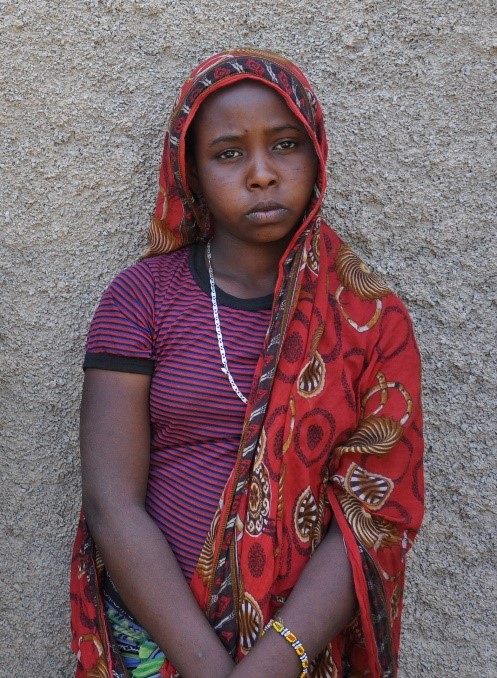Each day, 12-year-old Amina travels up to four kilometers by foot to attend school at Sabure Elementary in Awash Fentalie district of the Afar region. One afternoon, Amina was travelling home from school, along her usual route with her friends, when she was approached by a young man. This man abducted her, taking her nearly 60 km away from her village. Her friends rushed to Amina’s family home to report what they had witnessed.
Full of shock and anger, Amina’s parents and her peers hurried to the school to inform the school director of what had taken place. Her parents rallied members of the school committee which includes representatives from the women affairs office, kebele, and police to report the incident to the police station and demand the return of their daughter.
Fortunately, the police were able to quickly identify the man who had abducted Amina. Along with police officers, her parents and the school director travelled to the village Amina was taken to, and brought her home safely.
Amina’s father, Mr. Hassen Gayesa, was outraged and immediately began pursuing justice by bringing the man who abducted Amina to court. He questioned, “how dare he abduct a 12-year-old child to marry him? In our community, this should never happen.”
Unfortunately, incidents of child abduction and early marriage are all too common in Sabure woreda. Mr. Taddess Derebe, Amina’s school teacher, said, “in Sabure woreda the abduction rate is very high and people are always intimidated by it. We are conducting some campaigns to raise awareness and to fight abduction and other harmful traditional practices in the woreda.” He added, “Amref Health Africa in Ethiopia has supported us by providing different types of capacity building activities. Among the activities include a school comprehensive sexuality education (CSE) program which has helped to capacitate Amina’s peers, father, and the school community.”
The school-based interventions of the A’ago project include implementation of the ‘World Starts with Me’ curriculum in primary schools. This curriculum educates students, teachers, school staff, and community members on topics such as gender equality, physiological changes during puberty, menstruation and pregnancy, HIV prevention, and family planning. It is intended to educate, and also to empower trainees to practice ownership and agency for their sexual and reproductive health and rights (SRHR) outcomes. The curriculum is computer-based, unlike previous CSE approaches, which enables trainees to visualize the topics using pictures and other media. Trainings are mixed gender, facilitating open discussion and common understanding, and employ an entertainment-based training modality, which creates a relaxed learning environment, encouraging active participation among young participants.
Mr. Taddess Derebe enthusiastically shared, “the school director and his four teachers, including me, were trained to raise awareness and challenge actions like child abduction, by providing curriculum-based trainings to students. This is part of what has motivated her [Amina’s] peers, family, school community, and law enforcement bodies to collaborate and fight against such illegal acts. I am proud to say that we have recently certified 45 students who have successfully completed the 16 sexual reproductive lessons in a training.”
Amref Health Africa teams up with African communities to create lasting health change.

